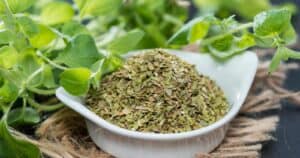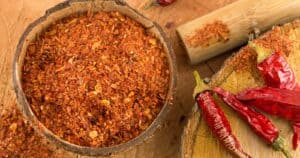Growing spicy jalapeños in your garden? You may notice some disappear before you get to pick them. So what animals are snacking on your prized peppers?
It turns out more critters than you’d think enjoy the fiery kick of jalapeños. Tiny pests like spider mites and slugs chew through tender leaves and stems. Surprisingly, certain birds seek out jalapeños for the nutritional boost. And little tree shrews actively forage for these spicy treats!
Unfortunately these animals can quickly destroy pepper plants. This article will explore the full list of jalapeño lovers and give you useful tips to save your crop.
Find out which animals are feasting on your plants and how to deter these spicy food fans! Discover organic, non-toxic methods to protect your jalapeños from clever wildlife.
Common Pests That Feed on Jalapeños
Tiny insects and worms are usually the culprits behind damaged jalapeño plants. Watch for these notorious critters:
- Spider mites – Tiny arachnids that suck juices from leaves, causing yellow speckles and wilting. Leave behind fine webs.
- Slugs and snails – Use raspy tongues to devour tender seedlings and leaves overnight. Leave shiny slime trails.
- Aphids – Soft, pear-shaped insects in clusters on stems and undersides of leaves. Stunt plant growth by feeding.
- Tomato hornworms – Plump green caterpillars with white v-shaped markings. Can quickly defoliate plants.
- Thrips – Minuscule winged insects that feed on leaves and fruits. Cause foliage to bronze and curl upward.
- Cutworms – Plump caterpillars that live in soil. Come out at night to sever stems at base.
Birds That Love Spicy Snacks
Surprisingly, some birds enjoy snacking on fiery jalapeño peppers:
- Robins – Devour jalapeños for moisture when water is scarce. Unaffected by capsaicin.
- Blue jays – Like peppers for vitamins, minerals, and antioxidants that boost health.
- Quail – Include peppers in their diverse diet for nutrients and energy.
- Chickadees – Tiny acrobatic birds seen eating small hot peppers while perched.
Tree Shrews – Seekers of Spice
Don’t assume mammals avoid spicy cuisine! Tree shrews actively seek out and feast on hot jalapeños and chili peppers in the wild. These tiny insect-eaters have a taste for zesty foods.
Scientists believe they may have evolved this spicy appetite to deter predators, get a mood boost from endorphins, or tap into the anti-inflammatory effects of capsaicin.
Protecting Plants from Pests
Shield your crop from ravenous wildlife with these tips:
- Use floating row covers or garden fabric over plants to create protective barriers.
- Install fencing and netting around beds to keep out climbing critters. Bury edges to deter burrowing pests.
- Apply natural repellent sprays made with garlic, chili pepper, or essential oils to make plants unappetizing.
- Introduce beneficial insects like ladybugs and lacewings that prey on jalapeño pests.
- Handpick pests like hornworms and cutworms. Check under leaves for egg clusters.
- Attract insectivorous birds by providing birdbaths, native plants, and nest boxes.
More Repellent Strategies
Additional ways to make jalapeños unappealing:
- Sprinkle used coffee grounds or crushed eggshells around plants. The abrasive textures deter soft-bodied slugs.
- Interplant with strong scent herbs like basil, mint, thyme, or sage. Intense aromas confuse pests.
- Use a sharp blast of water to knock pests off plants. Repeat treatments may be needed.
- Apply kaolin clay spray. The fine powder coats leaves and makes them unpalatable to insects.
- Install shiny pinwheels or aluminum pie plates that move in the wind. Reflections deter birds and insects.
Reasons Animals Eat Spicy Peppers
Curious why critters risk the burn? Possible motivations include:
- Nutrition – Peppers provide vitamins C, A, and B6 plus minerals like potassium.
- Medicinal effects – Capsaicin offers health benefits like reducing inflammation.
- Energy boost – Peppers provide a jolt of calories and stimulation.
- Protection from predators – Spicy taste deters predators sensitive to capsaicin.
- No discomfort – Some animals like birds lack receptors affected by the chemical.
The Science Behind Jalapeños’ Heat
The key to the jalapeño’s kick is a chemical called capsaicin. Here’s how it works:
- Capsaicin binds to sensory receptors in mammals’ mouths, triggering a burning sensation.
- Repeated exposure to capsaicin can make the burning feeling more tolerable over time.
- Capsaicin increases thermogenesis – the body’s heat production. This boosts metabolism.
- The amount of capsaicin varies by jalapeño variety – some are naturally hotter!
- Capsaicin concentration is highest in the ribs and seeds of the pepper.
Beyond Jalapeños – Other Foods Animals Love
Jalapeños aren’t the only garden treats animals enjoy. Be prepared for guests!
Sweet Fruits
Raccoons, possums, and bears relish fruits like berries, apples, peaches, and plums. Pick ripe fruits quickly. Remove fallen fruits from the ground. Wrap tree trunks with wire mesh to block climbing pests.
Bird Feed
Chickadees, nuthatches, finches, and more flock to birdseed, suet, and nectar feeders. Store feed in secure metal containers to block pests. Use feeder baffles, domes, and poles to make feed less accessible.
Garden Bounty
Deer, groundhogs, and rabbits nibble on veggies like lettuce, carrots, peas, and sweet corn. Protect plants with fencing and netting. Use scare tactics like motion-activated sprinklers.
Flowers and Pollen
Bees, butterflies, and hummingbirds are attracted to the nectar and pollen of zinnias, cosmos, bee balm, and other flowering plants. Avoid pesticides that could poison pollinators.
Take steps to protect your garden harvest while still welcoming beneficial wildlife! With smart strategies, you can happily share the bounty.





